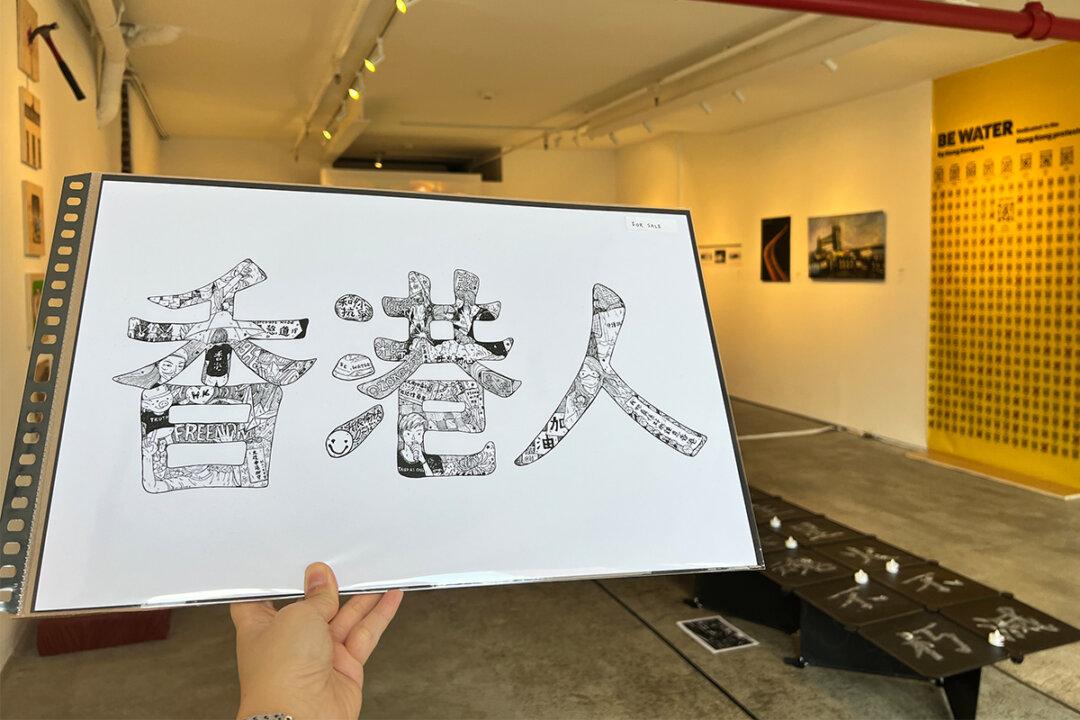As the Chinese Communist Party (CCP) intensifies its control over Hong Kong, more and more Hong Kong people are emigrating overseas. On the third anniversary of the anti-Extradition Movement, organizations of Hong Kongers in different countries are holding exhibitions and community activities to mark the occasion. Joseph Lian Yizheng (練乙錚), professor of economics and media personality, hoped that Hong Kong people will learn from the Jewish and maintain their cultural legacy after leaving their homeland.
Wandering Hong Kong, an art exhibition organized by Lion Rock Café (獅山冰室), is being held in Lower Manhattan, New York, featuring dozens of works of art in various forms, including paintings, installations, and videos. They are works of Hong Kongers from the United States, England, Germany, Taiwan and Canada.





